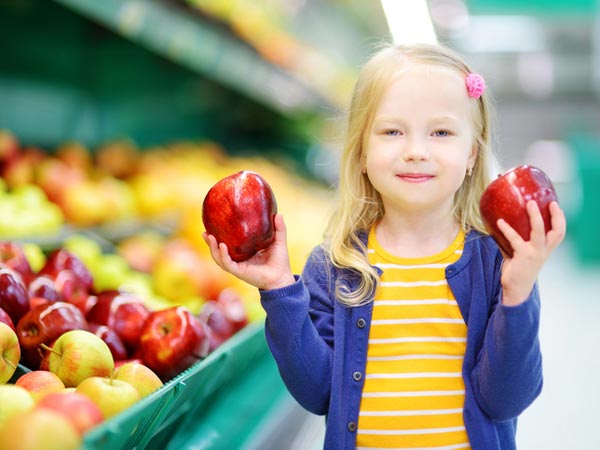Helping your kids understand how to read food labels prepares them for making smart food choices their whole lives. Whether in the supermarket, at home or at school, there are many opportunities to teach your child about nutrition. 
For younger children, focusing on MyPlate food groups and eating mindfully is a great place to start. Older children and teens can learn about individual nutrients on the Nutrition Facts label and how to decipher food label claims.
Home
Teaching children the basics of nutrition and label-reading can be done easily at home, with many examples of foods they like to eat with nutrition information on hand. Try some of these tips to teach them about healthful eating.- Enlist your child to help plan a meal based on MyPlate. Discuss themes such as varying protein sources, choosing whole grains and selecting colorful fruits and vegetables.
- When snacking, have your teen take a look at the Nutrition Facts label and serving size to discover what is in the food they're eating.
Supermarket
Label-reading in the supermarket is important because that's where most of the food in the home comes from. Send your child on a scavenger hunt to find nutritious options:- Canned fruit packed in water or their own juices.
- Frozen vegetables with no salt added.
- Whole-grain cereal that is low in sugar and high in fiber.
Lunchroom
It might be hard to monitor what foods children eat in the lunchroom, so it is best to encourage them to make healthy choices.- Challenge your child to pack a lunch modeling MyPlate.
- Encourage your child to read the labels of cafeteria items, and choose items low in added fats, sugars and salt.
- Review cafeteria menu offerings and discuss with your child what options they might choose that would provide each of the food groups in MyPlate that together create a balanced, healthful meal. (For example, ask your child what they will take for a vegetable, fruit, whole grain and protein food.)
- Leave a friendly note for your child about the healthy options in their lunch and why they are included.
Learn more about Nutrition Fact labels and changes to their layout by visiting the FDA website.
For more tips on setting your child up for healthy nutrition for life, consult a registered dietitian nutritionist.
Find a Nutrition Expert
Looking for credible nutrition information and recommendations? The Academy of Nutrition and Dietetics' network of credentialed food and nutrition practitioners are ready to help!

